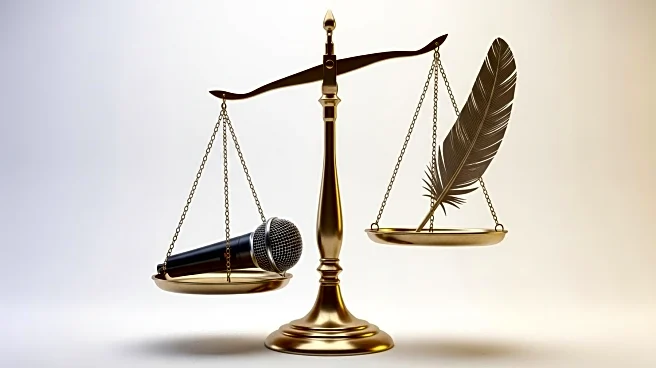What is the story about?
What's Happening?
The Federal Communications Commission (FCC) is at the center of a debate regarding media consolidation and its impact on free speech. This discussion has been reignited by the Telecommunications Act of 1996, which has been criticized for enabling government interference and corporate compliance in media operations. The act has been linked to recent events, such as the temporary suspension of Jimmy Kimmel from the airwaves, which sparked discussions about the government's influence over media deals. The FCC's role in regulating media ownership and ensuring diverse viewpoints are represented in the media landscape is under scrutiny.
Why It's Important?
The implications of media consolidation are significant for the U.S. public and democracy. A concentrated media landscape can limit diverse perspectives and reduce the variety of information available to the public, potentially influencing public opinion and democratic processes. The FCC's regulatory decisions can impact how media companies operate, affecting everything from content diversity to the economic viability of smaller media outlets. This situation highlights the ongoing tension between government regulation and corporate interests in the media industry, with potential consequences for free speech and public access to information.

















